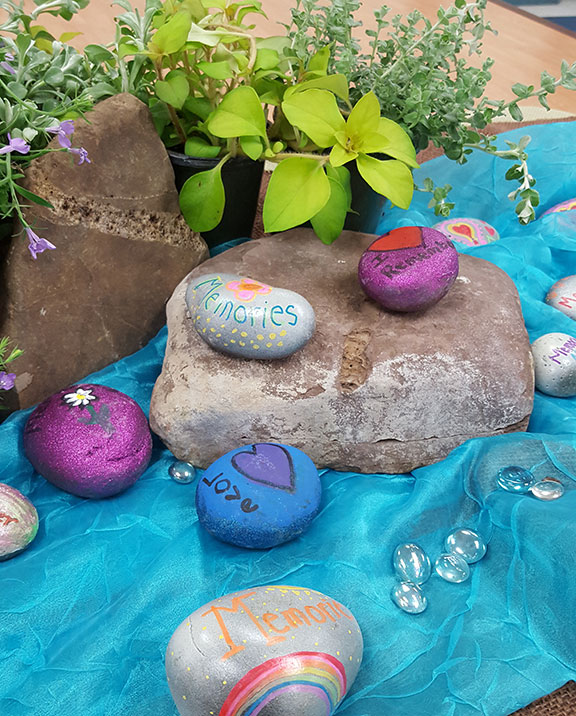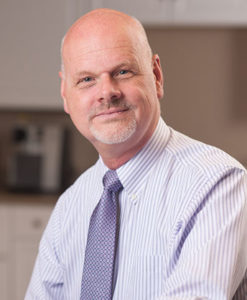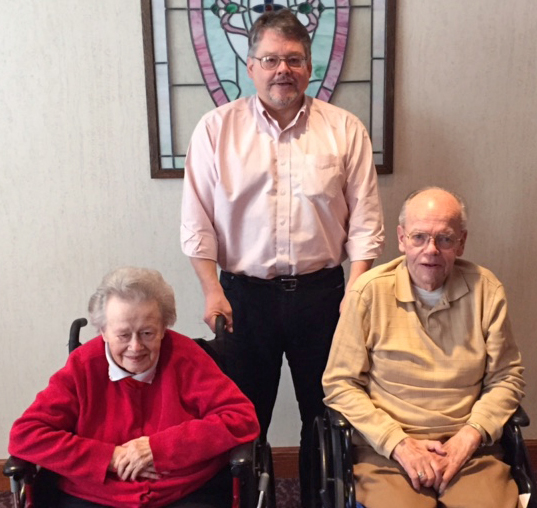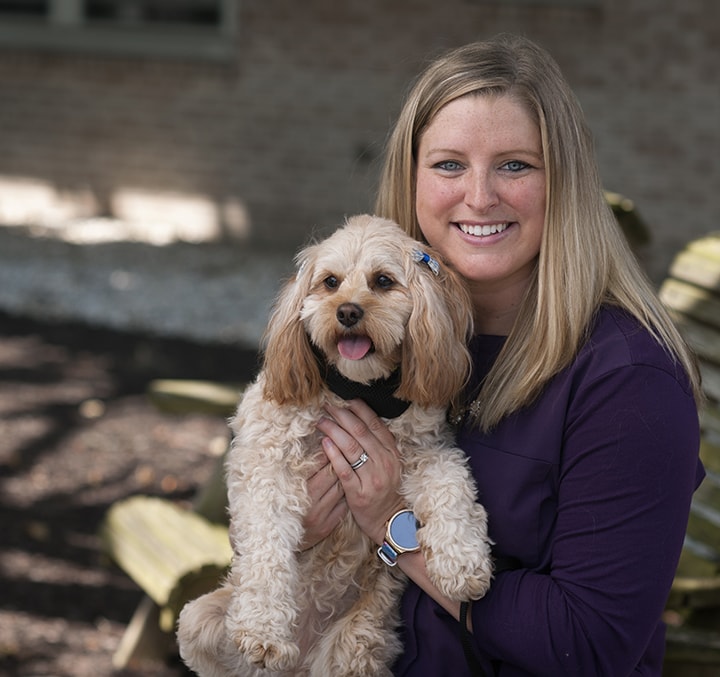Sharing Memories Brings Comfort at Memorial Picnic
 “My husband used to give me the first wildflower he saw each spring,” remarks a widow from a Homeland Hospice bereavement group. “Some years it was a dandelion.”
“My husband used to give me the first wildflower he saw each spring,” remarks a widow from a Homeland Hospice bereavement group. “Some years it was a dandelion.”
Fond memories of a loved one can bring solace and strength during the grieving process. Sharing memories with others helps us understand we are not alone in our journey.
Homeland Hospice provides bereavement support through phone calls, mailings, one-on-one consultations and support groups up to 13 months after the death of a loved one. Support groups offer self-awareness, healing and a sense of community, with individuals entering as strangers and often leaving as friends.
The Homeland Hospice family – including support group members, staff and volunteers – recently gathered to celebrate this special bond at the Homeland Hospice Annual Memorial Picnic in Enola. During the event, support group members each shared what they miss most about their loved ones.
Sisters Patty and Sheryl fondly remember their stepfather, Joe, as a proud veteran and a gentleman. He often spoke about his experiences on a B-52 aircraft during World War II and was a resident of Homeland Center when he died at age 97.
During Joe’s time at Homeland, staff members took him to New Cumberland Army Depot to tour a B-52 aircraft, just like the one he flew. Patty and Sheryl remember Joe’s excitement and happiness during this visit.
“He toured the entire plane and shook hands with everyone there,” Patty said.
Memories like this help sustain the sisters through their grief. They find comfort in sharing their remembrances with others who have similar experiences. Both sisters have participated in Homeland’s six-week bereavement support group program. Sheryl also attends a ladies luncheon held the third Friday of each month at Isaac’s Grill at the West Shore Plaza.
“Looking around the room, I know everyone has a story to tell,” Sheryl said. “It’s comforting to know how much Homeland cares about grieving families.”
At the close of the picnic, Brian Medkeff-Rose, M.Div., M.A., bereavement counselor at Homeland Hospice reminded guests that they are not alone.
“Everyone here has something in common,” Brian said, “We have all lost a loved one and understand the grieving experience.”
Homeland Hospice’s bereavement support program is available to the bereaved of Homeland’s patients as well as anyone in the community who is experiencing grief.
To learn more, please contact Brian Medkeff-Rose at Homeland Hospice at 717-221-7890.

 Employee Spotlight on Brian Medkeff-Rose
Employee Spotlight on Brian Medkeff-Rose You had always looked forward to experiencing the sounds and scents of the holiday season with family and friends. The traditions you created together decades ago brought you happiness. But after losing a loved one, listening to holiday music, baking cookies and shopping for gifts are much harder to appreciate. The parts of the season you once enjoyed now bring sadness.
You had always looked forward to experiencing the sounds and scents of the holiday season with family and friends. The traditions you created together decades ago brought you happiness. But after losing a loved one, listening to holiday music, baking cookies and shopping for gifts are much harder to appreciate. The parts of the season you once enjoyed now bring sadness. Born and raised in the beautiful Susquehanna Valley, Rev. Dann Caldwell has been a part of the Homeland family since 2013.
Born and raised in the beautiful Susquehanna Valley, Rev. Dann Caldwell has been a part of the Homeland family since 2013. Lisa Fetter, a lifelong Dauphin County resident, is a Social Worker for Homeland HomeHealth.
Lisa Fetter, a lifelong Dauphin County resident, is a Social Worker for Homeland HomeHealth.
